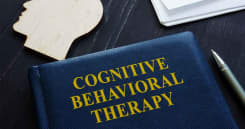Dr. John Hibscher, Director of Clinical Services at Hawaii Island Recovery, attended a two-day professional conference in Oahu this month on Cognitive Behavioral Therapy and Mindfulness and Advanced Mindfulness Techniques for Clients.
Professional Conference
Cognitive Behavioral Therapy is an evidenced-based therapy that addresses the cognitive distortions (false beliefs) that an individual has about themselves, others, and the world at large that contribute to distressing symptoms (anxiety, depression, etc.) and dysfunctional and self-defeating behaviors including addiction.
Mindfulness is a special (relaxed but concentrated) awareness of the present that is without judgment. Focusing on the present moment, there is a complete acceptance of one’s own thoughts, feelings, and bodily sensations which leads to being more grounded, resilient, and self-accepting.
Compassion involves sensitivity to suffering, a desire or commitment to relieve such suffering, and a willingness to be together with the person suffering. The basic nature that unites all humans is that everyone suffers (have problems) but all would like to be happy but don’t know how.

Cognitive behavioral therapy or CBT is a leading therapeutic approach today. It helps millions of people with a variety of different problems, from everyday struggles to serious mental illness. What exactly is cognitive behavioral therapy and how did it come to be the influential method it is today?
More infoA major cause of suffering is not accepting the reality
A major cause of suffering is not accepting reality; needing it to be different. Mindfulness combined with compassion can turn to suffer into something valuable versus trying to get rid of it. When we no longer define the difficulties or problems we have in life as something to fight, hate, or otherwise find intolerable, we open the door to happiness. Mindfulness helps one to discover that even in difficult moments, all conditions for happiness are present.
Richard Davidson, studying the neurological correlates and substrates in the brain for happiness, finds that mindfulness supports emotional resilience (connectivity between prefrontal cortex and amygdala), compassion meditation supports optimism (PFC to nucleus accumbens), and that compassion also supports social attunement (low to moderate activity in the amygdala and high activity in the fusiform gyrus). Davidson’s neuroscience-based conclusion: “Well-being can be learned, but it requires practice. There is no substitute for practice.”
Hawaii Island Recovery
At Hawaii Island Recovery, we are focused on addressing the psychological and emotional causes underlying and maintaining the addiction. Removing the suffering caused by both these symptoms and the addiction itself paves the way for establishing well-being and happiness.
 Hawaii Island Recovery
Hawaii Island Recovery 










